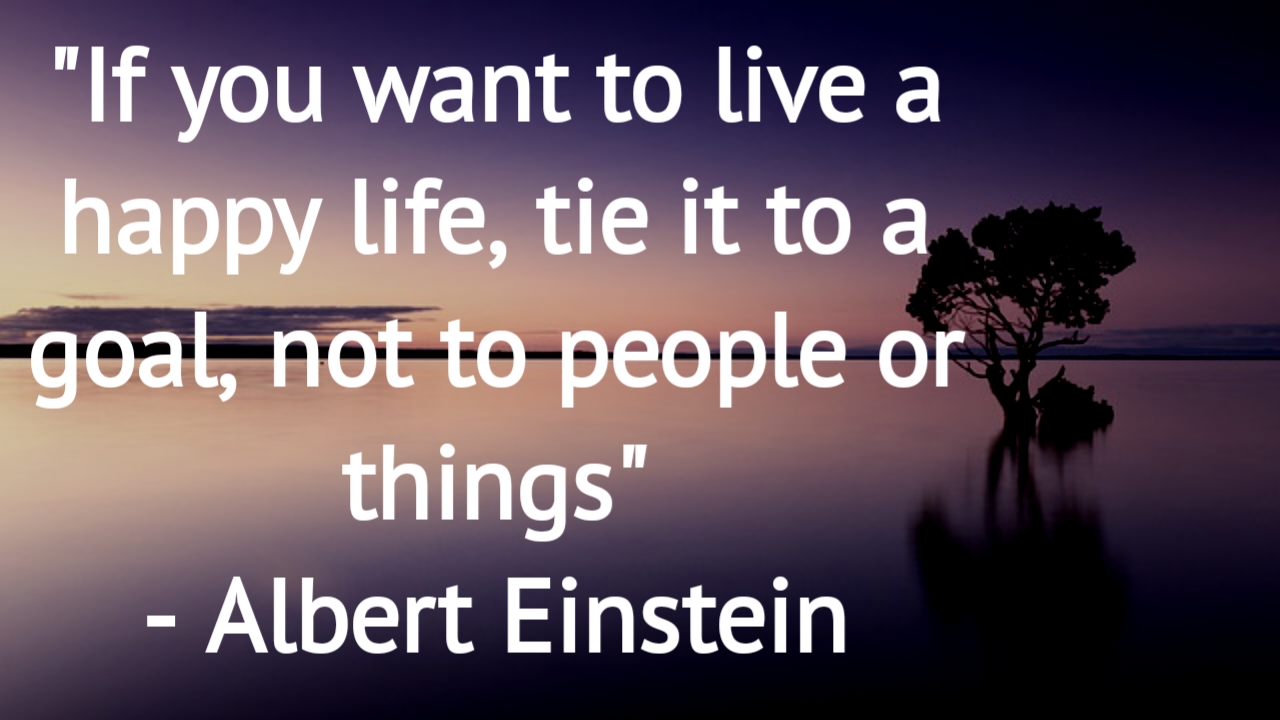Albert Einstein’s quote, “If you want to live a happy life, tie it to a goal, not to people or things,” emphasizes the importance of setting meaningful objectives for oneself.
In this context, Einstein suggests that finding happiness is more sustainable and fulfilling when rooted in personal achievements and aspirations rather than relying solely on relationships or material possessions.
By tying one’s happiness to a goal, individuals are encouraged to pursue their passions, personal growth, and accomplishments.
Money Quotes for Homeless People
Goals provide a sense of purpose and direction, fostering a continuous journey toward self-improvement. This approach suggests that while relationships and possessions can contribute to happiness, they are more fulfilling when complemented by individual achievements and a sense of purpose.
The Power of Personal Goals
Einstein encourages us to prioritize personal goals as the cornerstone of our happiness.
By setting and working towards meaningful objectives, individuals embark on a journey of self-discovery and continual improvement.
Meaning of “Little drops of water make a mighty ocean” quote
These goals can range from professional achievements to personal milestones, providing a sense of purpose and direction in life.
Sustainable Fulfillment
The quote suggests that happiness derived solely from relationships or material possessions might be fleeting.
While connections with others and worldly belongings contribute to joy, tying our happiness predominantly to these external factors may lead to vulnerability.
On the other hand, goals that reflect our passions and aspirations offer a more sustainable source of fulfilment.
Balancing Relationships and Ambitions
Einstein doesn’t dismiss the importance of relationships or material aspects in our lives. Instead, he encourages a balanced approach.
Meaning of “Scared of the big things? Try sleeping with mosquitoes” By Nekenwa Saviosantos
Tying our happiness to personal goals complements our connections with others and our possessions.
It’s about finding harmony between individual growth and shared experiences, recognizing that both contribute to a rich and satisfying life.
Continuous Self-Improvement
The idea of tying happiness to goals implies an ongoing process of self-improvement. It encourages a mindset of continuous learning and development, as each achieved goal opens the door to new possibilities.
This perpetual cycle of growth becomes a source of joy in itself, creating a positive and forward-moving momentum in one’s life.
In conclusion, Einstein’s advice urges us to see happiness as a multifaceted tapestry. While relationships and possessions add colour to this canvas, it’s the pursuit and attainment of personal goals that provide the underlying structure, ensuring a more resilient and fulfilling life.
Please feel free to contribute your opinion on this Albert Einstein’s quote.
